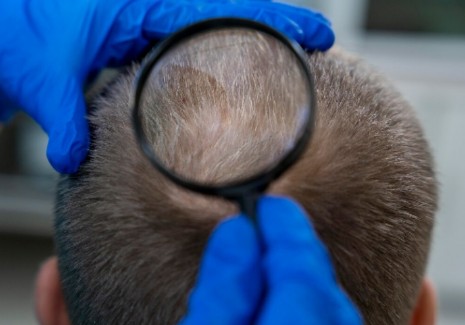Considering a FUE hair transplant in Melbourne? This cutting-edge technique has helped countless individuals regain their confidence and youthful looks. But to truly make the most of your investment, it’s crucial to follow certain steps before and after your procedure. Let’s dive into some expert tips for maximising the results from your FUE hair transplant.
Understanding FUE Hair Transplant
What is FUE?
Follicular Unit Extraction (FUE) is a modern hair transplant technique where individual hair follicles are extracted from a donor area, typically the back of the head, and implanted into balding or thinning areas. This method is less invasive than traditional hair transplant techniques and leaves minimal scarring.
How Does FUE Work?
During the FUE procedure, a surgeon uses a specialised tool to remove individual hair follicles from the donor area. These follicles are then carefully implanted into the recipient site, ensuring a natural-looking hairline and coverage.
Benefits of FUE Over Other Methods
FUE offers several advantages, including:
Minimal scarring
Unlike traditional methods, FUE leaves tiny, nearly undetectable scars.
Faster recovery times
Patients can return to their normal routines more quickly.
Natural-looking results
The precision of FUE provides a more natural appearance.
Flexibility in donor hair harvesting
Hair can be taken from various parts of the body if needed.
Pre-Transplant Preparation
Choosing the Right Clinic
Selecting a reputable clinic with experienced surgeons is paramount. Research clinics, read reviews, and seek recommendations to ensure you’re in good hands. Check for accreditation and the qualifications of the medical staff.
Importance of a Skilled Surgeon
A skilled surgeon can make all the difference in your results. Look for board-certified professionals with a proven track record in FUE hair transplants. Review before-and-after photos of previous patients to gauge their expertise.
Pre-Transplant Consultations
During consultations, discuss your goals, ask questions, and ensure you have a clear understanding of the procedure, recovery, and expected outcomes. This is also the time to discuss any medical conditions or medications you are taking.
Health and Lifestyle Adjustments Before Surgery

Maintaining a Healthy Diet
A nutrient-rich diet supports overall health and prepares your body for surgery. Focus on foods high in vitamins and minerals essential for hair growth, such as fruits, vegetables, lean proteins, and whole grains.
Avoiding Smoking and Alcohol
Smoking and alcohol can impede healing and affect hair growth. Avoid these substances in the weeks leading up to your surgery to enhance your body’s healing capacity.
Importance of Hydration
Staying hydrated aids in overall health and recovery. Drink plenty of water daily to keep your body in optimal condition. Hydration is crucial for maintaining healthy blood flow to the scalp.
Pre-Transplant Hair Care
Scalp Care Routine
Maintain a clean and healthy scalp by using gentle, nourishing shampoos and avoiding harsh chemicals. A clean scalp promotes better healing and graft acceptance.
Avoiding Hair Treatments
Refrain from using hair dyes, perms, or other treatments that could irritate your scalp before the transplant. These treatments can interfere with the surgery and post-op healing.
Importance of a Clean Scalp
A clean scalp is crucial for the surgery. Follow your surgeon’s instructions on how to prepare your scalp in the days leading up to the procedure. This may include specific washing routines and avoiding certain products.
Day of the Surgery
What to Expect
On the day of your surgery, you’ll arrive at the clinic and undergo final preparations. The procedure typically lasts several hours, depending on the number of grafts. You will be awake but sedated for comfort.
Arriving at the Clinic
Ensure you arrive on time and follow any pre-surgery instructions given by your clinic for your hair transplant in Melbourne. Wear comfortable clothing and avoid applying any hair products.
Immediate Pre-Surgery Steps
Before the surgery begins, your surgeon will mark the transplant area and administer local anaesthesia to minimise discomfort. You may also be given a mild sedative to help you relax.
Post-Transplant Care
Initial Recovery Phase
Post-surgery, you may experience some swelling and discomfort. Follow your surgeon’s instructions on managing pain and caring for the transplanted area. Ice packs and prescribed medications can help reduce swelling.
Medication and Pain Management
Take prescribed medications as directed to aid recovery and prevent infection. This may include antibiotics, pain relievers, and anti-inflammatory drugs.
Caring for the Transplanted Area
Keep the transplanted area clean and avoid touching or scratching it. Follow your surgeon’s guidelines on washing and caring for your scalp. Use mild, non-irritating products as recommended.
Long-Term Hair Care

Gentle Hair Washing Techniques
Use mild shampoos and avoid vigorous scrubbing. Gently pat your hair dry with a soft towel. Avoid using hair dryers and other heat-styling tools initially.
Avoiding Heat and Chemical Treatments
Steer clear of blow dryers, curling irons, and harsh chemical treatments that could damage your new hair. Allow your hair to air dry naturally and avoid styling products.
Regular Scalp Massages
Gently massaging your scalp can improve blood circulation and promote hair growth. Use your fingertips to apply light pressure in circular motions.
Nutrition for Hair Growth
Essential Nutrients for Hair Health
Ensure your diet includes vitamins A, C, D, and E, as well as iron, zinc, and omega-3 fatty acids. These nutrients support healthy hair growth and overall scalp health.
Recommended Supplements
Consider taking supplements like biotin and collagen to support hair health and growth. Consult with your doctor before starting any new supplement regimen.
Foods to Include in Your Diet
Incorporate foods like eggs, nuts, seeds, fish, and leafy greens into your diet for optimal hair health. These foods are rich in proteins, healthy fats, and essential vitamins and minerals.
Lifestyle Habits for Optimal Results
Regular Exercise
Exercise improves blood circulation, which can benefit hair growth. Aim for regular, moderate physical activity. Activities like brisk walking, cycling, or yoga are excellent choices.
Stress Management
Stress can negatively impact hair health. Practice relaxation techniques like meditation, yoga, or deep breathing exercises. Consider mindfulness practices to keep stress levels in check.
Adequate Sleep
Ensure you’re getting enough sleep each night to support overall health and recovery. Aim for 7-9 hours of quality sleep to allow your body to heal and rejuvenate.
Common Mistakes to Avoid
Over-Washing Hair
Washing your hair too frequently can strip it of natural oils and hinder growth. Stick to a gentle washing routine. Your surgeon will provide specific guidelines on how often to wash your hair post-surgery.
Ignoring Post-Op Instructions
Follow your surgeon’s post-op instructions meticulously to avoid complications and promote healing. This includes medication schedules, activity restrictions, and care routines.
Using Harsh Hair Products
Avoid shampoos and conditioners with sulphates and parabens. Opt for gentle, nourishing products instead. Look for labels that indicate products are safe for sensitive or treated hair.
Monitoring Progress
Regular Check-Ups with Your Surgeon
Attend follow-up appointments to monitor your progress and address any concerns. These check-ups are crucial for assessing the success of the transplant and making any necessary adjustments.
Tracking Hair Growth
Take photos regularly to track your hair growth journey and notice improvements over time. This visual record can help you see progress and stay motivated.
Adjusting Care Routine as Needed
Be open to adjusting your hair care routine based on your surgeon’s advice and your hair’s needs. Your care needs may change as your hair grows and your scalp heals.
When to Expect Full Results
Typical Timeline for Hair Growth
Most patients see noticeable results within 6-12 months, with full growth typically achieved by 12-18 months post-surgery. Hair growth occurs in phases, so patience is key.
Variability in Results
Remember, individual results may vary. Factors like hair type, age, and health can influence outcomes. Genetics and overall health play significant roles in hair growth success.
Patience and Realistic Expectations
Be patient and maintain realistic expectations. Hair growth takes time, but the results are worth the wait. Understand that progress may be gradual and steady.
Psychological Aspects of Recovery
Managing Expectations
Set realistic expectations and understand that results won’t be immediate. Discuss potential outcomes with your surgeon to align your goals and expectations.
Dealing with Anxiety and Stress
It’s normal to feel anxious. Seek support from friends, family, or a professional if needed. Talking about your concerns can alleviate stress and provide reassurance.
Importance of Support Systems
Surround yourself with supportive people who can help you through the recovery process. Their encouragement and understanding can make a significant difference in your journey.






